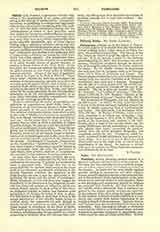

Familiars, strictly speaking, seculars subject to a master’s authority and maintained at his expense. In this sense the idea embodies service rendered to masters, as well as wages, board, and lodging provided by the masters. In canon law the term usually signifies seculars residing in monasteries and other religious houses, actually employed therein as servants and subject to their masters. Many are accorded their familiars. For this reason familiars validly receive absolution from a confessor approved by the regular prelate, or from one approved by the ordinary of the place where the house is located. In like manner, familiars actually dwelling in a monastery may receive their Easter Communion in the church or chapel of the monastery. Extreme unction and Viaticum may also be administered to them in the monastery. Boys boarding in colleges or academies supervised by religious or by diocesan clergy, and girls boarding in convents conducted by sisterhoods, practically enjoy the same privileges as familiars. According to the Council of Trent (Sess. XXIII, cap. ix, De Reformatione), “a bishop may not ordain one of his own household who is not his subject unless he has lived with him for the space of three years, and he shall really and without fraud of any kind, straightway confer on him a benefice, notwithstanding any contrary custom even immemorial”.
J. D. O’NEILL

